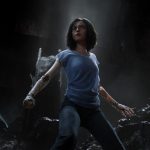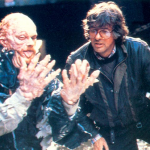🎬 The Darkest Minds (2018)
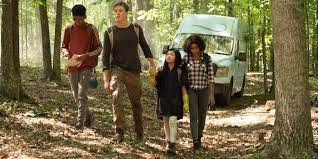
🎬 The Darkest Minds (2018)
IMDb: 5.7/10 | Directed by Jennifer Yuh Nelson | Starring Amandla Stenberg, Harris Dickinson, Mandy Moore, Patrick Gibson
“If you’re one of us, come find us.”
Introduction
Adapted from Alexandra Bracken’s bestselling YA novel, The Darkest Minds (2018) brings a dystopian world of superpowered teens to the big screen. Directed by Jennifer Yuh Nelson (Kung Fu Panda 2), this film attempts to combine thrilling action, emotional depth, and a coming-of-age story. While it offers engaging performances and intriguing concepts, the movie struggles to stand out in a crowded genre of YA adaptations.
Plot Summary
A mysterious disease has wiped out 90% of the world’s children, and the surviving 10% develop extraordinary abilities, ranging from telekinesis to mind control. These children are deemed dangerous and are imprisoned in government-run camps.
Ruby Daly (Amandla Stenberg) escapes confinement after discovering she’s one of the most powerful “Orange” types, capable of manipulating minds. On the run, she joins a group of fugitive teens: leader Liam (Harris Dickinson), tech-savvy Chubs (Skylan Brooks), and mute yet resourceful Zu (Miya Cech). Together, they search for East River, a rumored safe haven for children like them, while evading the government and bounty hunters. Along the way, Ruby must learn to trust her newfound friends and embrace her powers to fight for their freedom.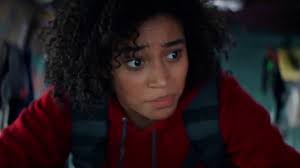
What Works in The Darkest Minds
1. Amandla Stenberg’s Performance
As Ruby, Amandla Stenberg delivers a heartfelt and nuanced performance. She captures Ruby’s inner conflict, fear, and growing confidence with authenticity, making her a compelling protagonist. Stenberg’s chemistry with Harris Dickinson adds depth to the story’s central romance.
2. Unique Powers and World-Building
The film’s classification of powers into color-coded categories (Green for intelligence, Blue for telekinesis, Yellow for electricity, Red for fire, and Orange for mind control) is a creative concept that adds intrigue. The dystopian world, with its oppressive government and rebellious factions, sets the stage for potential exploration.
3. Themes of Identity and Resistance
At its core, The Darkest Minds is about self-discovery, resilience, and the power of unity. The film highlights the struggles of marginalized individuals fighting against a system that seeks to control and suppress them, resonating with contemporary social issues.
4. Action-Packed Sequences
The chase scenes and battles, particularly involving the use of powers, are visually engaging and provide bursts of excitement. Ruby’s moments of unleashing her abilities are among the film’s highlights.
Standout Moments
- Ruby’s Escape from the Camp
Ruby’s harrowing escape early in the film sets the tone for her journey and showcases her powerful abilities. - East River Reveal
The group’s discovery of East River and its enigmatic leader, Clancy Gray (Patrick Gibson), adds layers of tension and mistrust to the story. - Final Confrontation
The climactic battle sees Ruby fully embrace her powers, making for an emotionally charged and visually striking sequence. - Ruby’s Sacrifice
In a poignant moment, Ruby erases Liam’s memories of her to protect him, underscoring the emotional stakes of their relationship.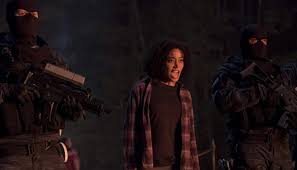
Themes and Messages
1. The Fear of the Unknown
The government’s oppressive actions reflect societal fears of what cannot be controlled or understood, a theme that parallels real-world issues of prejudice and authoritarianism.
2. Power and Responsibility
Ruby’s journey is one of learning to harness her abilities for the greater good, emphasizing the responsibility that comes with power.
3. The Importance of Found Family
The bond between Ruby, Liam, Chubs, and Zu highlights the idea that family isn’t always defined by blood but by shared experiences and mutual support.
Criticisms
1. Generic Plot and Pacing
While The Darkest Minds introduces intriguing concepts, its execution often feels formulaic. The plot follows familiar YA tropes—oppressive governments, love triangles, and special protagonists—without adding much innovation. The pacing occasionally drags, leaving some characters and subplots underdeveloped.
2. Missed Opportunities in World-Building
Despite its promising premise, the film barely scratches the surface of its dystopian world. Key aspects, such as the origins of the disease and the government’s true motivations, remain vague.
3. Limited Character Development
While Ruby and Liam receive ample attention, other characters, particularly Chubs and Zu, are given less screen time, reducing their potential impact on the story. Similarly, the villainous Clancy Gray lacks depth, making his actions less compelling.
Legacy and Reception
Upon its release, The Darkest Minds received mixed reviews. Critics praised Amandla Stenberg’s performance and the film’s visuals but criticized its derivative plot and underdeveloped world-building. Despite its lukewarm reception, the film gained a modest fanbase among YA audiences.
Although The Darkest Minds had the potential to launch a franchise, its box office performance fell short, leaving the series’ continuation uncertain. However, the film remains a notable entry in the YA dystopian genre, particularly for fans of the original novel.
Final Thoughts
While The Darkest Minds (2018) doesn’t fully capitalize on its intriguing premise, it offers enough action, emotion, and standout performances to entertain fans of the genre. Amandla Stenberg’s portrayal of Ruby anchors the film, making it a worthwhile watch for those seeking a mix of dystopian thrills and heartfelt drama.
Although it falls short of standing out in the crowded YA adaptation landscape, The Darkest Minds serves as a reminder of the genre’s enduring appeal and its potential to explore meaningful themes.
Hashtags:
#TheDarkestMinds #YoungAdultMovies #DystopianThriller #AmandlaStenberg #SuperpoweredTeens #FoundFamily
